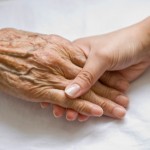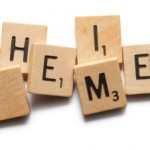My wife and I recently talked about the consequences of aging, physical and mental, and I decided to order a booklet from Harvard Medical School titled "Improving Memory: Understanding age-related memory loss." Then we set out on a Monday through Friday visit to old friends (literally, since most were more than 85 years old and at least five were over ninety). We flew from Denver to a city we once lived in and saw ten individuals/couples over the ensuing four days.
I remembered a family occasion fourteen years ago when my Dad and another elderly relative were talking about whether they'd rather be as they were, over ninety and suffering various aches and pains, but mentally sharp, or like another senior at the dinner was, a year or so older and healthy physically, but over the Alzheimer's cliff. They both voted for being creaky, but lucid.
The older friends we visited in three locales on the recent trip reminded me of Dad's discussion back in 1998. Most were a little frail and complained of a variety of back, leg and joint issues, but they were mentally right on target. On the other hand, I wondered if several had at least mild cognitive impairment.
Then we came home and I started reading the booklet. There are seven normal types of memory problems: a tendency to forget thing over time (transience), absentmindedness, blocking, misattribution, suggestibility, bias, and persistence. All of these can be worsened with age without implying more severe brain issues: Alzheimer's, other dementias or even mild cognitive impairment.
I had the second of those seven problems yesterday, seeing a new member of my men's book group on the front steps of the house we were meeting in, introducing ourselves by first names and then sitting through a detailed discussion of a book, The Inventor's Dilemna, over the next two hours.
One of the seniors we visited on our trip had always been superb with names and even in her mid-80s is much better than most of us. I never had that talent and, of course, I have even less of it at age 71.
I had made no real attempt to store the other guy's name, didn't give him one of my usual memory-hook mental pictures, and totally forgot it by the time we left. One trick to overcome absentmindedness is using cues. I'm a "visual-verbal" person, and so I tend to superimpose an unusual tie or a mustache or something similar and then repeat the cue to myself. When I do that, I remember names. In his case, I hadn't done so.
The book from Harvard has ten ways to promote memory health. One was very striking to me: "Get a good night's sleep." I sometimes read late into the night, 11:30 or 12 or even 12:30, and when I do I'm a tad groggy in the morning. That's not something I should do if I want to be at my best the next day.
So, having been in their company for a few minutes to several hours at most, I wouldn't even venture a guess as to whether the older friends we had eaten a meal with, or talked with for five or ten minutes, were mentally totally normal for their age and encountering one of the seven types of age-related memory problems we'll all have to cope with, or, possibly, had more severe issues.
But I will use the ideas in the book from Harvard Medical School.
Tags: age-related memory problems, Alzheimer's, Harvard Medical School publications, mild cognitive impairment, promoting memory health


